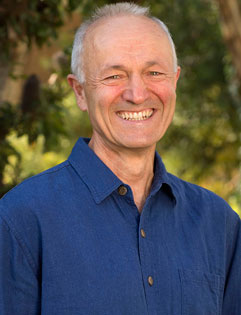
Understanding intellectual property
2. How business lobbying changed the world
In the second part of his talk, Peter Drahos outlines how concerted business lobbying inserted intellectual property into the global trade negotiations, which resulted in the Agreement on Trade-Related Aspects Intellectual Property Rights (TRIPS) becoming part of the World Trade Organisation. He sketches out some implications of this on states' ability to act on citizens behalf through regulating for food provisioning, health and environmental well-being. He uses the example of Australia's tobacco plain packaging legislation to illustrate this.
Please respond to a 60 sec survery after watching - Click here to take surveyThe running order for the video is as follows:
Introduction. 0 - 1 minute 41 seconds
Part 1. Changing the global rules : 1 min 41 sec - 10 min 11 sec
Part 2. Some effects: 10 min 11 sec - 21 min 48 sec
Part 3. Australia vs Big Tobacco: 21 min 48 sec - 34 min 58 sec
Part 4. Lessons from Australia's tobacco experience: 34 min 58 sec - end
Further reading
See listings under his first talk, plus:
ARTICLES
Peter Drahos, (1995): ‘Global Property Rights in Information: The Story of TRIPS at the GATT’, Prometheus, vol 13, no 1, pp6-19
BOOKS
See books by Peter Drahos listed in the column on the right.
Carolyn Deere (2009): The Implementation Game - The TRIPS Agreement and the Global Politics of Intellectual Property Reform in Developing Countries, OUP, Oxford.
Susan K. Sell (2003): Private Power, Public Law - The Globalisation of Intellectual Property Rights, CUP, Cambridge.
Nicholas Shaxson (2011): Treasure Islands - Tax Havens and the Men Who Stole the World, The Bodley Head, London
Links
IPRsonline.org is an internet portal on Intellectual Property Rights (IPRs) and Sustainable Development. It contains a selection of relevant online documents and resources related to IPRs and sustainable development including a guide to IPRs, proposals submitted to the WTO, discussion papers classified by topics, latest news on IPRs, and links to listservs and relevant institutions working on IPRs.
Intellectual Property Watch provides a news service about IPRs across the world.
The South Centre follows developments in IPRs from a developing countries perspective.
Tax Justice Network is an independent international network launched in 2003. It conducts high-level research, analysis and advocacy on international tax; on the international aspects of financial regulation; on the role of tax in society; and on the impacts of tax evasion, tax avoidance, tax 'competition' and tax havens.
About

Peter Drahos is a Professor in the Regulatory Institutions Network at the Australian National University and holds a Chair in Intellectual Property at Queen Mary, University of London. He is a member of the Academy of Social Sciences in Australia.
He holds degrees in law, politics and philosophy and is admitted as a barrister and solicitor. He has published widely on a variety of topics including contract, legal philosophy, telecommunications, intellectual property, trade negotiations, international business regulation, indigenous people and intellectual property, energy governance and climate change.
His publications include A Philosophy of Intellectual Property, Dartmouth, 1996; Global Business Regulation, Cambridge University Press, 2000 (with John Braithwaite); Information Feudalism: Who Controls the Knowledge Economy?, Earthscan, 2002 (with John Braithwaite); Global Intellectual Property Rights: Knowledge, Access and Development, Macmillan, 2002 (with Ruth Mayne); The Global Governance of Knowledge: Patent Offices and Their Clients, Cambridge University Press, 2010; and, Intellectual Property, Indigenous People and Their Knowledge, Cambridge University Press, 2014.
Global Business Regulation was awarded the Hart Socio-Legal Studies Book Prize for 2000, the American Sociological Association’s Prize in the Sociology of Law 2002 and the Grawemeyer Award in Ideas Improving World Order, 2004.
Usage
This video is a public good, open education resource that is unrestricted in non-commercial use (for commercial purposes or in commercial organisations permission is needed). If in doubt please contact Geoff Tansey. Please respond to the survey as this feedback will help in taking this 'virtual academy' work further. Suggestions for further materials to be linked to this page or added to this series are also welcome. If you want to arrange for follow-up discussions for a class with Peter Drahos via the internet – over Skype or some other service - please contact him.